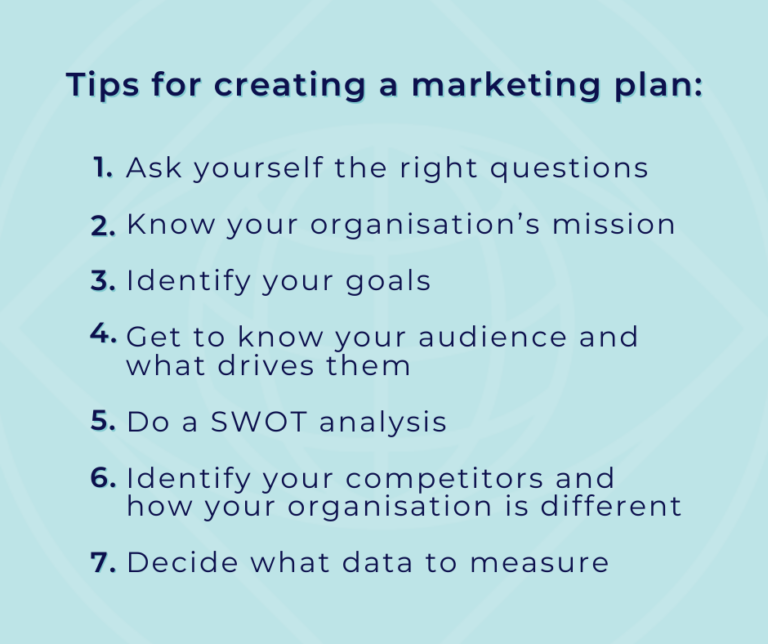7 reasons that more veganic farming is urgently needed


To give your vegan business the best chance of success, it needs a clear marketing plan.
In case you’re not 100% sure what a marketing plan is, it’s essentially a strategic roadmap to help you identify opportunities, and organise, execute and track marketing activities to promote your business.
A well-thought-out marketing plan can help you decide how to spend your marketing budget to reach the people who are most likely to buy from you instead of throwing everything at the wall and hoping something sticks.
Below, you’ll find our top seven hints and tips for creating a meaningful marketing plan:
The following three questions are a good starting point:
You may need to do some more market research before you’re able to answer these questions but it’s a great way to understand what your potential customers want, why and how you can meet their needs.
What is the overall mission of your organisation? Let’s imagine it’s to “make healthy vegan food choices mainstream”.
Your marketing mission will expand on this to include how you plan to bring in customers and accomplish this mission. For example, it could be “to attract vegans who want to eat clean food, educate them on their food choices, and sell to them via our website and in-person at vegan events or in our shop”.
What are your short-, medium- and long-term goals for your vegan business? Examples of immediate goals could be:
Or you might have longer-term goals such as:
You can then create a subset of smaller goals for each main goal, breaking down each step you’ll need to take to achieve your targets.
If you know what you want your marketing to achieve, it’s much easier to frame any marketing decisions within the question, “Will this take us closer to our goals or further away?” If a marketing activity isn’t going to help you reach a goal, you probably won’t want to do it.
Trying to create marketing that appeals to everyone is a sure-fire way to appeal to no- one!
Who are the people who will love your vegan business and turn into raving fans?
The more you can find out about your audience, the easier it is to develop a brilliant marketing plan. You’ll know how to talk to your potential customers and where your marketing is most likely to reach them (i.e. which social media platforms they use, what kind of websites they visit, the blogs they read or podcasts they listen to, and so on).

A marketing SWOT analysis is when you identify your organisation’s strengths, weaknesses, opportunities and threats.
Usually, strengths and weaknesses will be about the internal resources you have in your business (e.g. budget, people, knowledge, skills, equipment, inventory, etc.). Opportunities and threats tend to come from external sources such as the market, your competitors, suppliers, government policy, international events, etc.
Doing a SWOT analysis should help you to pinpoint strengths and opportunities you can build on straight away, as well as where you might need to plug the gaps in your marketing or set yourself apart from your competitors.
While you won’t want to get too bogged down by what your competitors are up to, it is important to know who they are and how they’ve positioned their organisation in the marketplace. This can help you to pinpoint how your business is different and communicate your unique selling points (USPs) to your audience.
Once you’ve defined your goals and gone through the points above, you’ll need to decide which data/metrics you’ll need to monitor to figure out whether your marketing activities are working. This could include:
Remember, it can take three to six months for the marketing you do today to bring in results, so it’s worth tracking your chosen metrics for a few months before you decide whether things are working or not.
Once you have an agreed marketing plan, you can start to create multiple marketing strategies for your business. Each marketing activity will usually have its own strategy and might include things like:
Despite the separate strategies, they will all refer back to the overall marketing plan. This is a great way to make sure your marketing stays on track and that you get as much return on investment (ROI) from your marketing spend as possible.